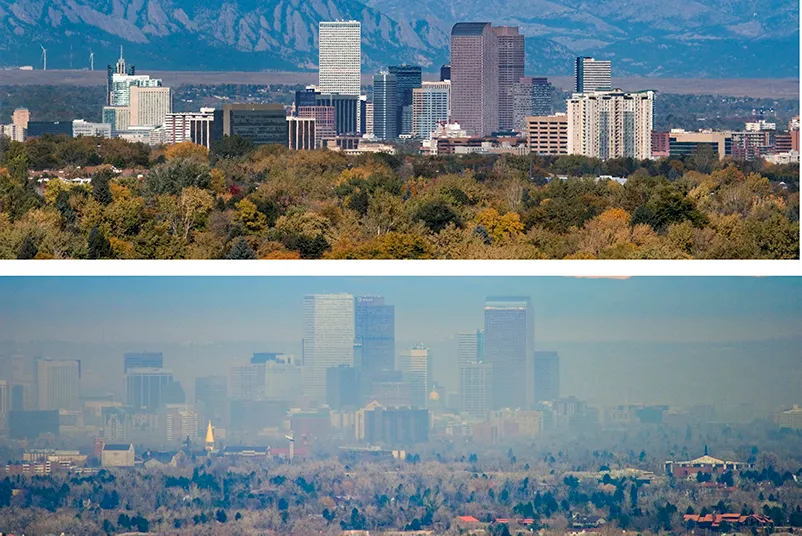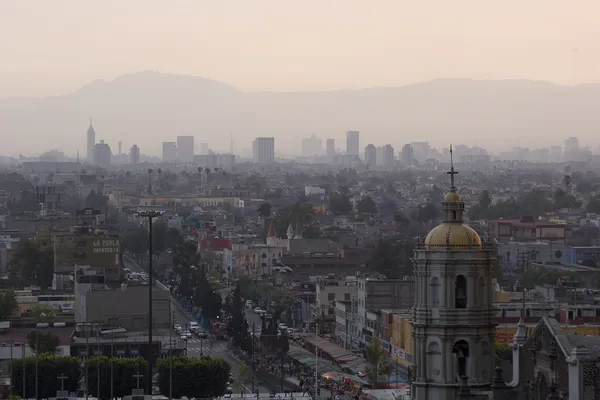What Is Air Quality?
When air quality is good, the air is clear and contains only small amounts of solid particle and chemical pollutants. Poor air quality, which contains high levels of pollutants, is often hazy and dangerous to health and the environment. Air quality is described according to the Air Quality Index (AQI), which is based on the concentration of pollutants present in the air at a particular location.

Air quality along the Front Range of the Rocky Mountains in Colorado is sometimes good (top) and sometimes poor (bottom). Often called “the brown cloud,” poor air quality in this location is frequently caused by a thermal inversion, where cold air descending from the higher elevation mountains traps vehicle exhaust and pollutants near the surface, resulting in hazy conditions that are high in pollutants.
iStock Dave Parsons (top image), Steven Krull (bottom image)
Why Does Air Quality Change?
Because air is always moving, air quality can change from day to day, or even from one hour to the next. For a specific location, the air quality is a direct result of both how air moves through the area and how people are influencing the air.
Humans Affect Air Quality
Geographic features such as mountain ranges, coastlines, and land modified by people can cause air pollutants to concentrate in, or disperse from, an area. However, the types and amounts of pollutants entering the air have a much larger impact on air quality. Natural sources, such as volcanic activity and dust storms, add some pollutants to the air, but most pollutants come from human activity. Vehicle exhaust, smoke from coal-burning power plants, and toxic gases from industry are examples of human-made air pollutants.
Winds Affect Air Quality
Wind patterns have an impact on air quality because winds move air pollution around. For example, a coastal area with an inland mountain range may have more air pollution during the day when sea breezes push pollutants over the land, and lower air pollution in the evenings because the direction of the breeze reverses and pushes air pollution out over the ocean.

Air pollution in Mexico City causes hazy skies that block sunlight from reaching the ground.
UCAR
Temperature Affects Air Quality
Temperature can also affect air quality. In urban areas, air quality is often worse in the winter months. When the air temperature is cooler, exhaust pollutants can be trapped close to the surface beneath a layer of dense, cold air. In summer months, heated air rises and disperses pollutants from the Earth’s surface through the upper troposphere. However, increased sunlight results in more harmful ground-level ozone.
Air Pollution
Air pollution negatively impacts the land and oceans, as well as the air. Good air quality is critical for maintaining healthy human, animal, and plant life on Earth. Air quality in the US has improved as a result of the Clean Air Act of 1970, which has helped to curb air pollution and save thousands of lives every year. However, with an increasing world population and 80% of the world’s energy budget coming from burning fossil fuels, air quality remains a top concern for our present and future quality of life.